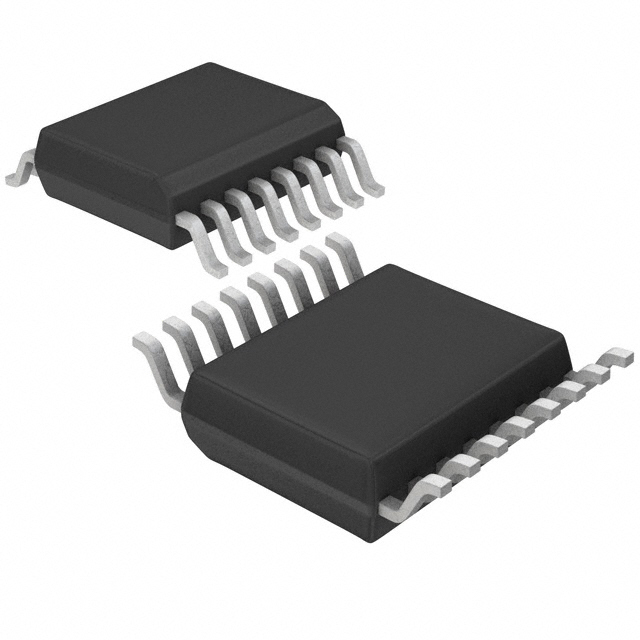Consulte las especificaciones para obtener detalles del producto.

NB2308AC1DTR2G
Basic Information Overview
- Category: Integrated Circuit (IC)
- Use: Signal Distribution and Clock Generation
- Characteristics: Low Jitter, High Frequency, Low Power Consumption
- Package: DFN-10
- Essence: Clock Buffer and Divider
- Packaging/Quantity: Tape and Reel, 3000 units per reel
Specifications and Parameters
- Supply Voltage: 1.8V to 3.3V
- Output Frequency Range: 1MHz to 350MHz
- Number of Outputs: 8
- Output Logic Levels: LVCMOS
- Operating Temperature Range: -40°C to +85°C
Detailed and Complete Pin Configuration
The NB2308AC1DTR2G has the following pin configuration:
- VDD: Power supply voltage input
- GND: Ground reference
- OUT0: Output 0
- OUT1: Output 1
- OUT2: Output 2
- OUT3: Output 3
- OUT4: Output 4
- OUT5: Output 5
- OUT6: Output 6
- OUT7: Output 7
Functional Characteristics
The NB2308AC1DTR2G is designed to distribute clock signals and generate multiple synchronized outputs. It provides low jitter and high-frequency performance while consuming minimal power. The device operates within a wide temperature range and supports LVCMOS logic levels.
Advantages and Disadvantages
Advantages: - Low jitter for accurate signal distribution - High-frequency capability up to 350MHz - Low power consumption for energy efficiency
Disadvantages: - Limited output frequency range compared to some other clock generation ICs - Only supports LVCMOS logic levels
Applicable Range of Products
The NB2308AC1DTR2G is suitable for various applications that require signal distribution and clock generation, such as: - Communication systems - Networking equipment - Data storage devices - Industrial automation
Working Principles
The NB2308AC1DTR2G operates by taking an input clock signal and dividing it to generate multiple synchronized output signals. It uses internal circuitry to minimize jitter and ensure accurate signal distribution. The device is powered by a supply voltage within the range of 1.8V to 3.3V.
Detailed Application Field Plans
The NB2308AC1DTR2G can be used in the following application fields:
- Communication Systems: Provides synchronized clock signals for data transmission and reception.
- Networking Equipment: Distributes clock signals to synchronize network components.
- Data Storage Devices: Ensures accurate timing for reading and writing data.
- Industrial Automation: Synchronizes control signals in automated systems.
Detailed Alternative Models
Some alternative models to the NB2308AC1DTR2G include: - NB2308AC1DTG - NB2308AC1DTG2 - NB2308AC1DTG2G
These models offer similar functionality but may have slight differences in specifications or package options.
5 Common Technical Questions and Answers
Q: What is the maximum output frequency of the NB2308AC1DTR2G? A: The maximum output frequency is 350MHz.
Q: Can the NB2308AC1DTR2G operate with a supply voltage below 1.8V? A: No, the minimum supply voltage required is 1.8V.
Q: How many outputs does the NB2308AC1DTR2G have? A: It has 8 outputs.
Q: What is the operating temperature range of the NB2308AC1DTR2G? A: The device can operate within a temperature range of -40°C to +85°C.
Q: What is the package type of the NB2308AC1DTR2G? A: It is packaged in a DFN-10 package.
This encyclopedia entry provides an overview of the NB2308AC1DTR2G, including its basic information, specifications, pin configuration, functional characteristics, advantages and disadvantages, applicable range of products, working principles, detailed application field plans, alternative models, and common technical questions and answers.

